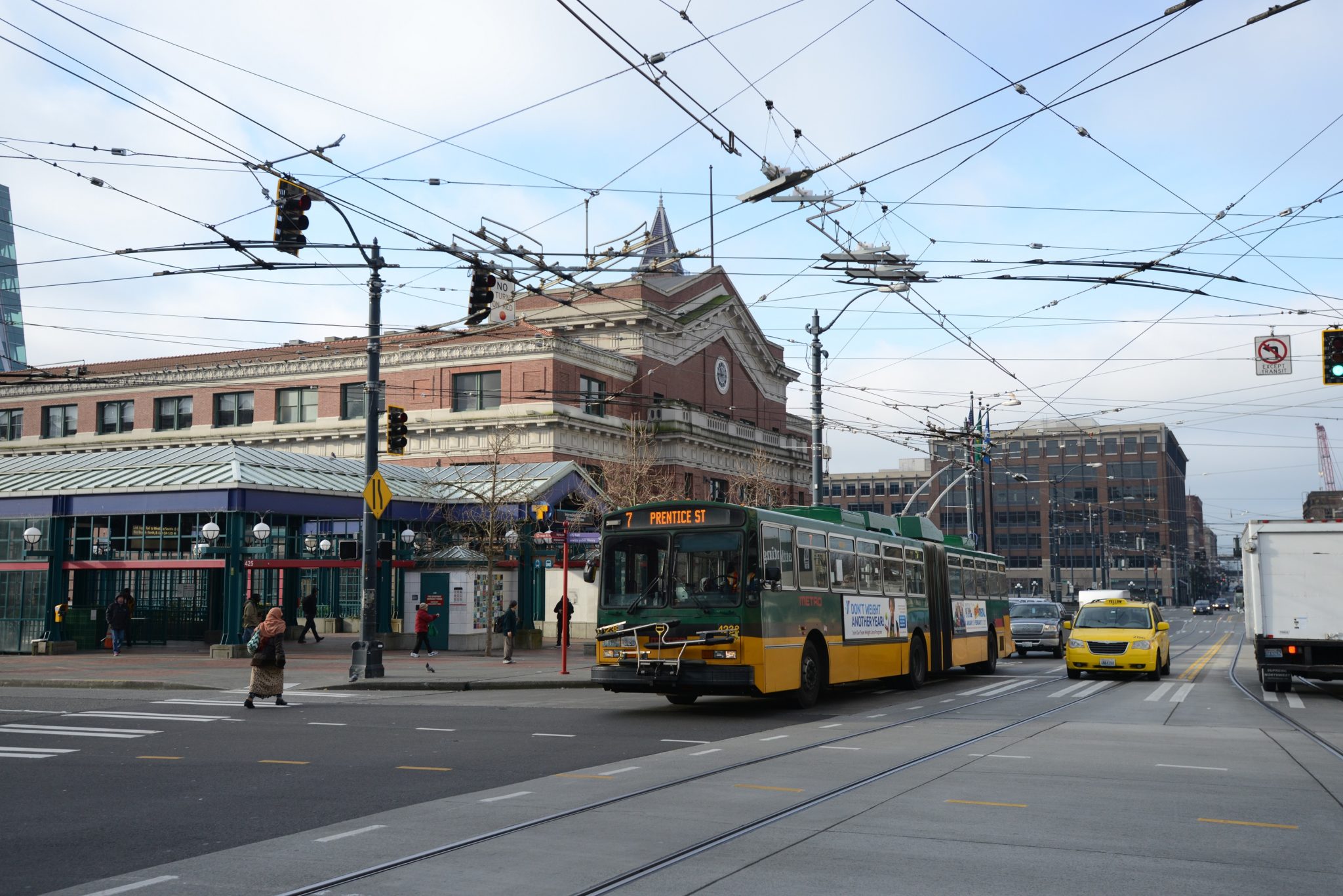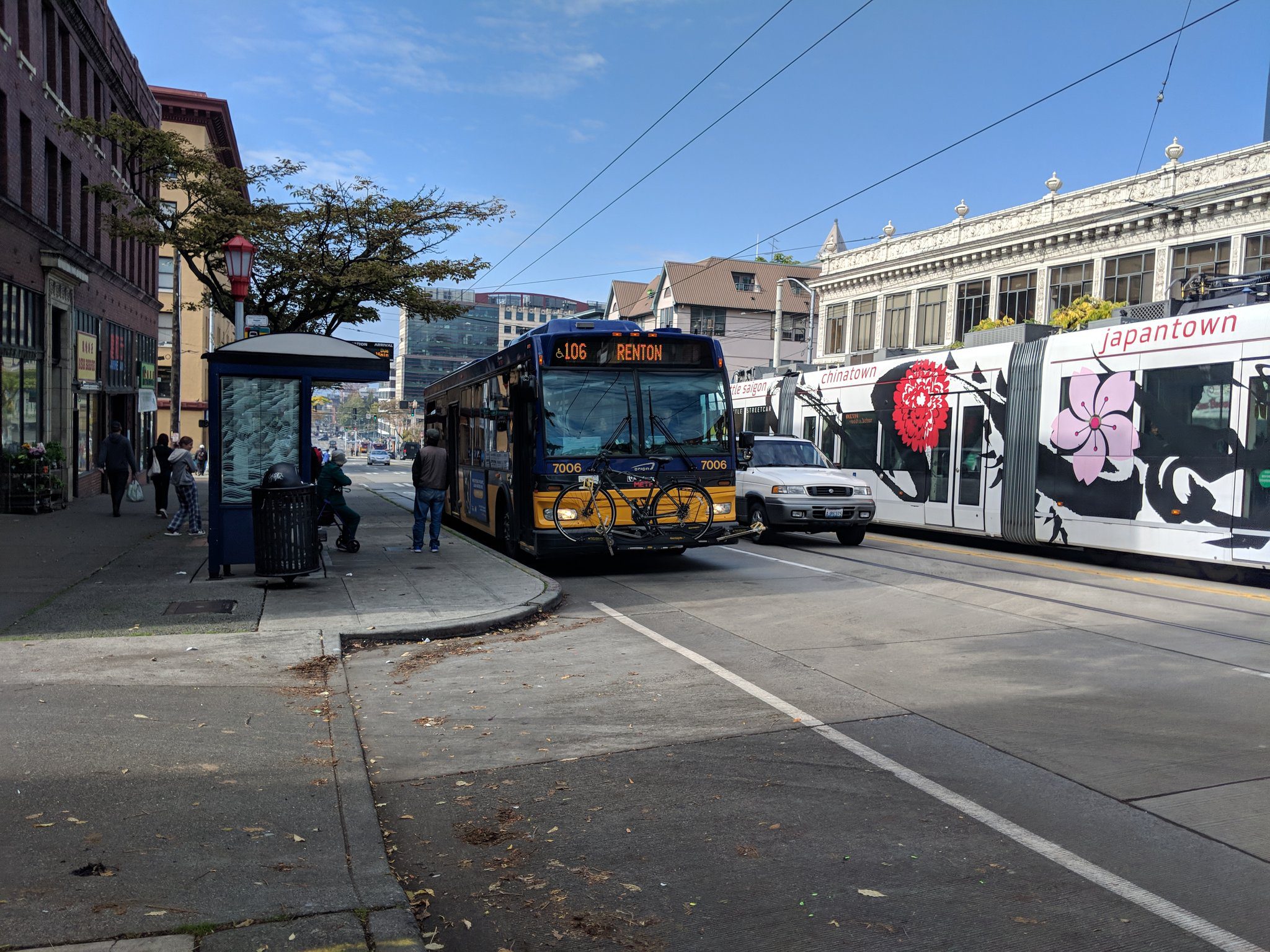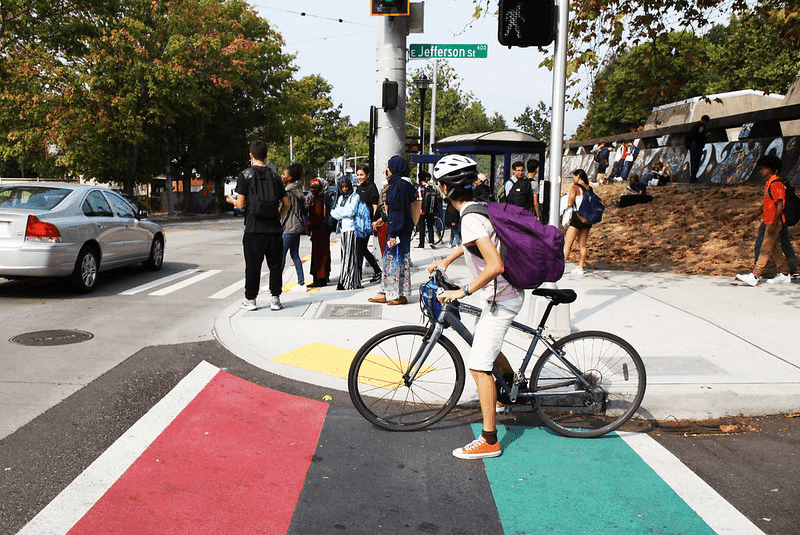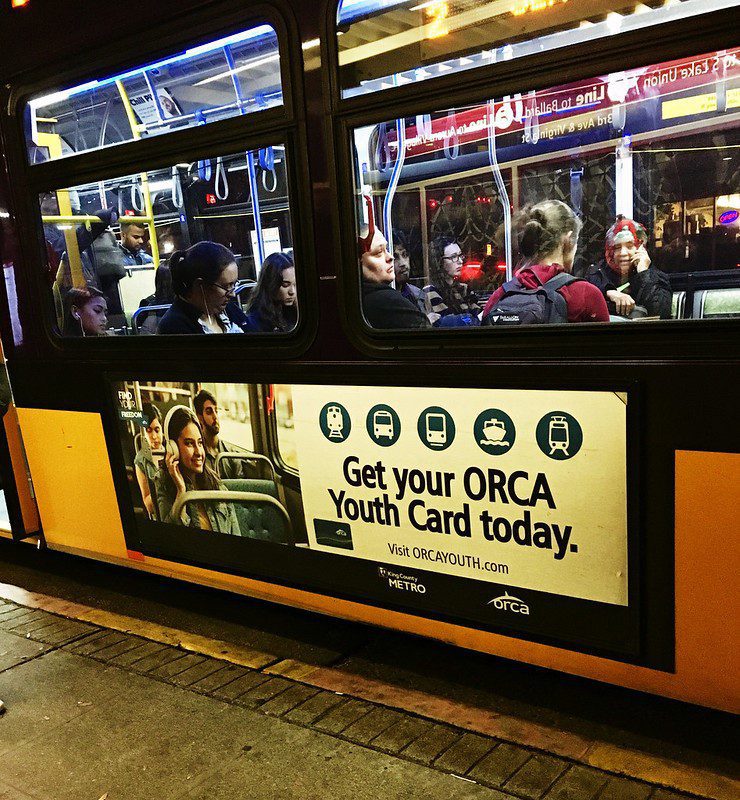 A King County Metro bus (route 7) travels through the Chinatown-International District, along S Jackson St. Photo: SDOT
A King County Metro bus (route 7) travels through the Chinatown-International District, along S Jackson St. Photo: SDOT The ORCA Recovery Card Program provides free ORCA cards to essential workers and encourages people to take transit while saving money on transportation.
Mayor Jenny A. Durkan announced today that the ORCA Recovery Card Program, which provides free ORCA cards to essential workers in Chinatown-International District and Pioneer Square, will extend through December 31, 2022. People who received the card during the summer can continue using the same card free of charge for another year to help get them to where they need to go affordably and efficiently. The City of Seattle recognized the benefits of the ORCA Recovery Card with 91 percent of people using transit more frequently than they did before receiving their ORCA card, according to a survey conducted by the Seattle Department of Transportation (SDOT). The program supports small business recovery by assisting employees in traveling or returning to work in some of our most vibrant neighborhoods, helps people save money on transportation and encourages them to take transit more which helps the city meet sustainability goals.
“We’re making transit free to empower more people including students and essential workers to take transit to work, school, or around our great city. These programs exemplify our focus on equity and supporting environmentally friendly, reliable travel options in order to help everyone in Seattle.”
– Seattle Mayor Jenny A. Durkan

In addition to the ORCA Recovery Cards, we expanded the ORCA Opportunity Program to Seattle public middle school students this school year. Now public middle schoolers, high schoolers, Promise Scholars, and eligible Seattle Housing Authority residents can all receive free ORCA cards which encourage them to use public transit to access schools and services and help reduce traffic congestion near schools.

In total, we have distributed 21,500 free ORCA cards this year which includes 18,000 students this school year, plus over 1,600 essential workers and nearly 1,900 Seattle Housing Authority residents.
“Our goal is to create a more resilient, sustainable city, with accessible transit for all. With the ORCA Recovery Cards, people can continue to commute and explore new areas of their city and community through transit at no cost. We’re so excited that the Recovery Cards have been useful as we move toward pandemic recovery and it’s great to see that people are using their new ORCA cards frequently.”
– Sam Zimbabwe, Director, Seattle Department of Transportation
For eligible individuals and businesses that did not receive an ORCA card, they can visit the ORCA Recovery Card Program website or email DOT_TAP@seattle.gov to request one.
The ORCA Recovery Card Program is possible thanks to 80 percent of Seattle voters passing the Seattle Transit Measure, which created a revenue source for more frequent, reliable, accessible bus service in our city. Through a 0.15 percent sales tax (the equivalent of 15 cents on a $100 purchase) we are directly supporting COVID recovery in our community.
ORCA Recovery Card Program
The ORCA Recovery Card is a temporary, no-cost, fully-subsidized ORCA card provided to food service and grocery/convenience store employees who work at a business in Pioneer Square or the Chinatown-International District, including Chinatown, Little Saigon, and Japantown.
Earlier this year, we invited people who had received a free ORCA Recovery Card to respond to a survey and provide feedback which will be used as one metric to evaluate the overall success of the program. About one in five ORCA Recovery Card recipients took the survey and responded to questions about how they were using the card and how it has affected their life.
The survey showed that people used their free ORCA frequently and are more likely to take transit:
- 91 percent of participants said that they use transit more frequently than they did before receiving their ORCA card.
- 84 percent use their ORCA card three or more times per week.
- 93 percent say that it is convenient for them to use the ORCA Recovery card to take transit to and from work.
- 95 percent feel that they save money with the ORCA Recovery Card.

ORCA Opportunity Program
The ORCA Opportunity card provides unlimited transit rides on King County Metro, King County Water Taxi, Seattle Streetcar, Sound Transit, Community Transit, Pierce Transit, Kitsap Transit, Everett Transit, and Seattle Center Monorail, creating a passport to the city and beyond.
